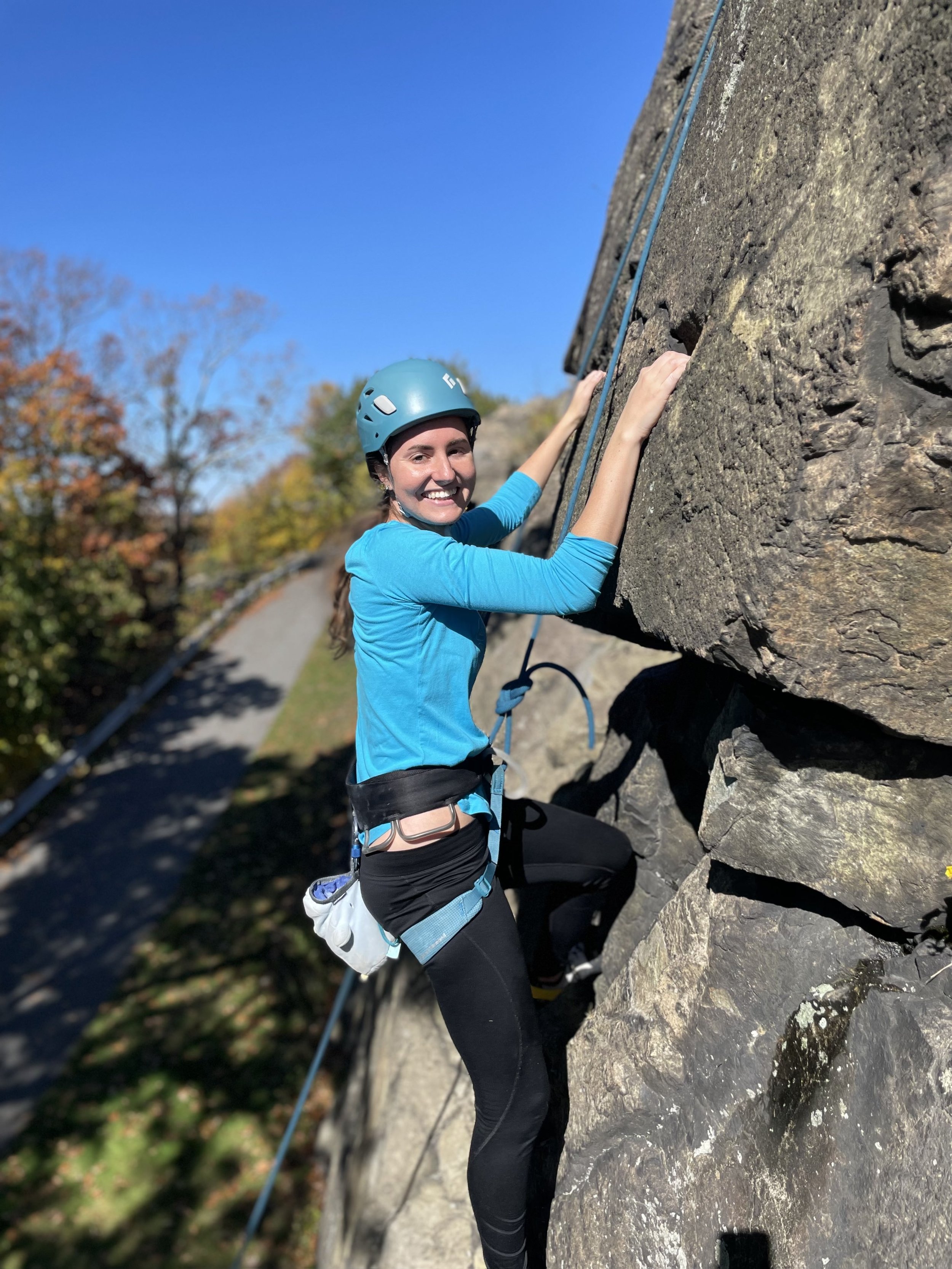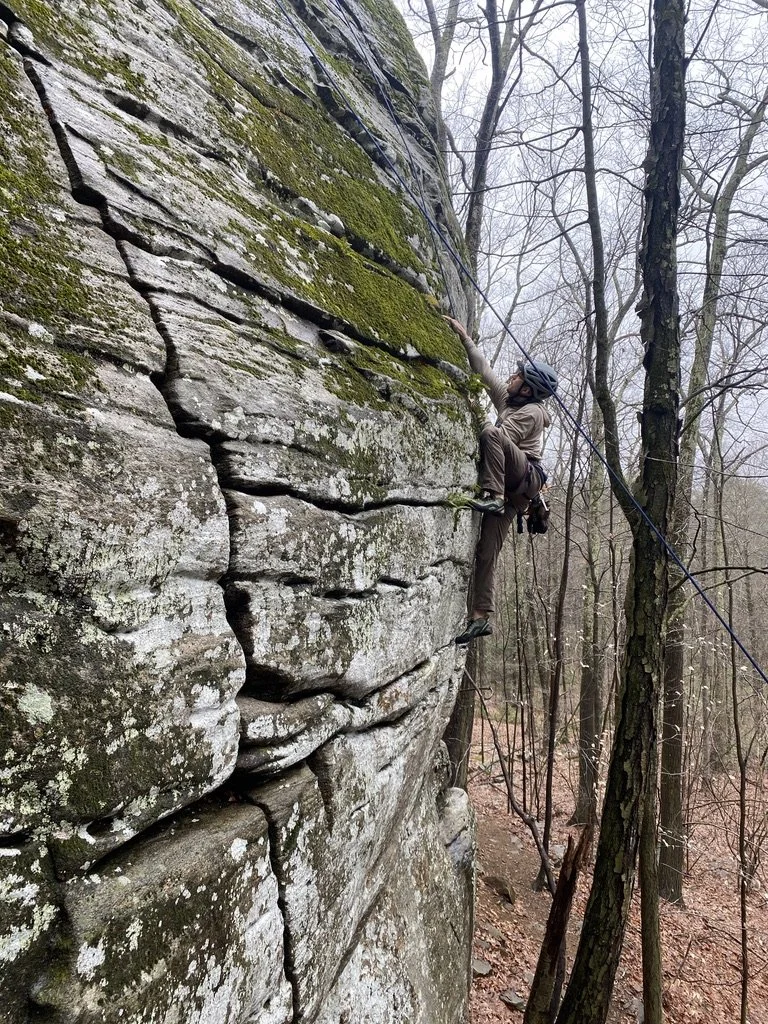
Take your climbing skills to the next level
Climbing Courses Near Boston
We offer many rock climbing courses, which are group classes in areas of rock climbing. You can learn things like how to rock climb, how rock climbing anchors work, how to rappel, rock climbing rescue skills, and more. These courses are set for particular dates and are open enrollment. All courses run for 8 hours (typically 8am-4pm) on the selected date. Course size is usually small with a 1:6 or 1:4 ratio. These courses provide a more affordable option than our private climbing days.
You can also sign up for a private day of climbing and ask for us to cover one of these courses with you (and a few of your friends) in a way that fits your schedule and your specific climbing goals.
-

Intro to Top Rope Course
Our Intro to Top Rope course is designed for new climbers or experienced gym climbers. This course covers all of the basics that you need to be able to set up your own top ropes on bolts outside and become a self-sufficient top-rope climber.
You will learn: what gear you need, how to tether yourself, different top-rope anchors and when to use them, cleaning anchors, and the basics of belaying and climbing.
-
Advanced Top Rope Skills Course
Do you know the basics of top rope and want to take the next step? The advanced tope rope skills course will give you the skills to expand the climbing options around you so that you can broaden your climbing horizons. You will also learn valuable skills that can improve your quality of life when climbing outside and that will be great assets before learning more-advanced types of rock climbing.
This course is designed for anyone that has outdoor climbing experience and/or has completed the Intro to Top Rope course.
In this course you will learn how to build tree anchors, how to belay from the top, and how to rappel.
-

Intro to Outdoor Sport Climbing
Many people learn to lead climb in the gym and want to take these skills outdoors! This course is designed with these climbers in mind. We will review the many differences and similarities of lead climbing on bolted routes indoors vs. out. If you are going to start sport climbing outdoors you will likely be headed to areas such as Rumney, NH or Farley, MA.. This course is usually hosted at Mormon Hollow in Wendall, MA. Course times typically run 8AM - 4PM. 4:1 Student to Instructor Ratio
-
Intro to Traditional Climbing Course
Traditional (Trad) climbing is a leader placing protection as they climb by using specialized gear and natural rock features. Placing protection with trad gear is a very advanced skill that requires a lot of knowledge to get right.
This course is for experienced top-rope and/or sport climbers that want to start learning trad leading under the guidance of a climbing professional. You will learn how to place three types of trad equipment: cams, tri-cams, and nuts. You will also practice building gear anchors and climb your first trad leads! 4:1 Student to instructor ratio.
-

Self Rescue Skills
Rescue skills are a necessity for any climber looking to take on bigger objectives. They can help you round out your climbing toolbelt and be able to respond if you ever need to help a climber.
This course teaches systems and techniques to perform rescue skills in a climbing setting. This course is perfect for anyone that leads climbing groups and wants to learn how to respond to rescue a climber off the wall.
In this course, you will learn how to escape the belay, how to take over a belay, how to ascend a rope, and advanced lowering skills.
4:1 Student to instructor Ratio
-

Intro to Outdoor Bouldering
Perhaps you started climbing indoors and have developed a love for bouldering? Now you want to take your skills outside…
This 4 hour course is designed to review the basics of bouldering outdoors and provide practice on some quality, introductory blocs with a supportive and informative group and LOTS of pads!
Bouldering is a form of climbing where climbers ascend small faces (in this case 15ft. or less) without ropes using ground pads and spotters as protection. When every fall is a ground fall it’s important to set up for success by applying sound judgement, managing risks and choosing appropriate routes.


